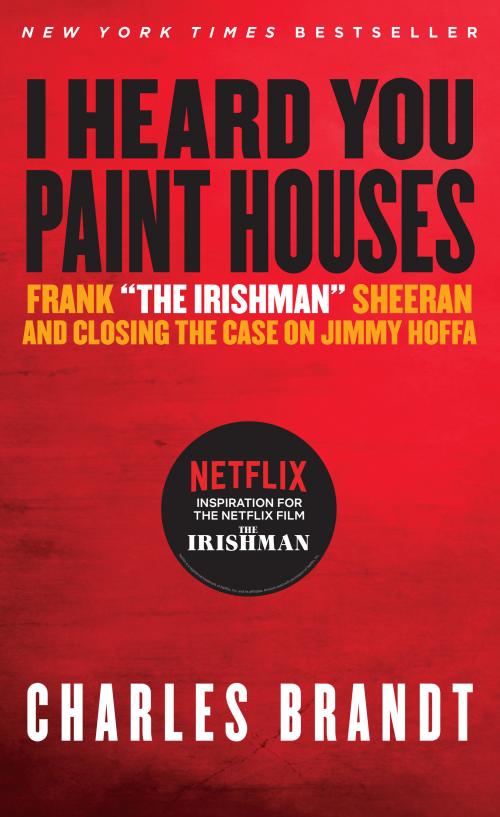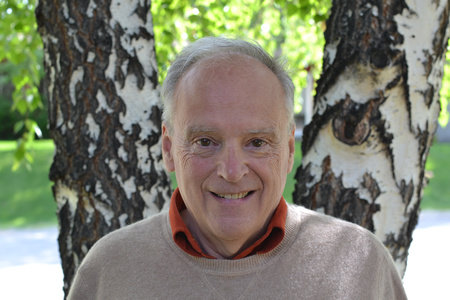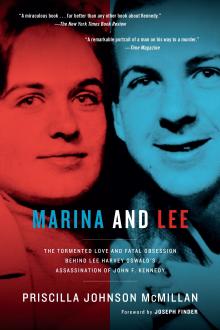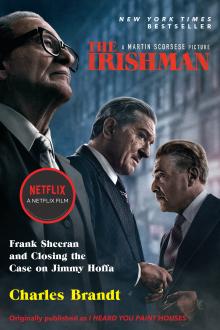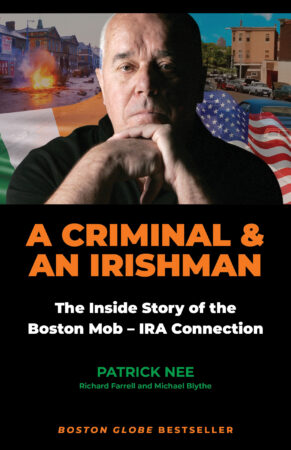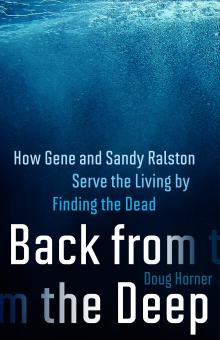Excerpt
“They Wouldn’t Dare”
I asked my boss, Russell “McGee” Bufalino, to let me call Jimmy at his
cottage by the lake. I was on a peace mission. All I was trying to do at
that particular time was keep this thing from happening to Jimmy.
I reached out for Jimmy on Sunday afternoon, July 27, 1975. Jimmy
was gone by Wednesday, July 30. Sadly, as we say, gone to Australia —
down under. I will miss my friend until the day I join him.
I was at my own apartment in Philly using my own phone when I
made the long-distance call to Jimmy’s cottage at Lake Orion near
Detroit. If I had been in on the thing on Sunday I would have used a pay
phone, not my own phone. You don’t survive as long as I did by making
calls about importantmatters fromyour own phone. I wasn’tmade with
a finger. My father used the real thing to get my mother pregnant.
While I was in my kitchen standing by my rotary wall phone getting
ready to dial the number I knew by heart, I gave some consideration
to just how I was going to approach Jimmy. I learned during my years
of union negotiations that it always was best to review things in your
mind first before you opened your mouth. And besides that, this call
was not going to be an easy one.
When he got out of jail on a presidential pardon by Nixon in 1971,
and he began fighting to reclaim the presidency of the Teamsters,
Jimmy became very hard to talk to. Sometimes you see that with guys
when they first get out. Jimmy became reckless with his tongue — on
the radio, in the papers, on television. Every time he opened his
mouth he said something about how he was going to expose the
mob and get the mob out of the union. He even said he was going to
keep the mob from using the pension fund. I can’t imagine certain
people liked hearing that their golden goose would be killed if he got
back in. All this coming from Jimmy was hypocritical to say the least,
considering Jimmy was the one who brought the so-called mob into
the union and the pension fund in the first place. Jimmy brought me
into the union through Russell. With very good reason I was concerned
for my friend more than a little bit.
I started getting concerned about nine months before this telephone
call that Russell was letting me make. Jimmy had flown out to
Philly to be the featured speaker at Frank Sheeran Appreciation Night
at the Latin Casino. There were 3,000 of my good friends and family,
including the mayor, the district attorney, guys I fought in the war
with, the singer Jerry Vale and the Golddigger Dancers with legs that
didn’t quit, and certain other guests the FBI would call La Cosa
Nostra. Jimmy presented me with a gold watch encircled with diamonds.
Jimmy looked at the guests on the dais and said, “I never realized
you were that strong.” That was a special comment because
Jimmy Hoffa was one of the two greatest men I ever met.
Before they brought the dinner of prime rib, and when we were getting
our pictures taken, some little nobody that Jimmy was in jail
with asked Jimmy for ten grand for a business venture. Jimmy reached
in his pocket and gave him $2,500. That was Jimmy — a soft touch.
Naturally, Russell Bufalino was there. He was the other one of the
two greatest men that I ever met. Jerry Vale sang Russ’s favorite song,
“Spanish Eyes,” for him. Russell was boss of the Bufalino family of
upstate Pennsylvania, and large parts of New York, New Jersey, and
Florida. Being headquartered outside New York City, Russell wasn’t in
the inner circle of New York’s five families, but all the families came to
him for advice on everything. If there was any important matter that
needed taking care of, they gave the job to Russell. He was respected
throughout the country. When Albert Anastasia got shot in the
barber’s chair in New York, they made Russell the acting head of that
family until they could straighten everything out. There’s no way to
getmore respect than Russell got. He was very strong. The public never
heard of him, but the families and the feds knew how strong he was.
Russell presented me with a gold ring that he had made up special
for just three people — himself, his underboss, and me. It had a big
three-dollar gold piece on top surrounded by diamonds. Russ was big
in the jewelry-fencing and cat-burglar world. He was a silent partner
in a number of jewelry stores on Jeweler’s Row in New York City.
The gold watch Jimmy gave me is still on my wrist, and the gold
ring Russell gave me is still on my finger here at the assisted-living
home. On my other hand I’ve got a ring with each of my daughters’
birthstones.
Jimmy and Russell were verymuch alike. They were solidmuscle from
head to toe. They were both short, even for those days. Russ was about
5’8″. Jimmy was down around 5’5″. In those days I used to be 6’4″, and
I had to bend down to them for private talks. They were very smart
from head to toe. They had mental toughness and physical toughness.
But in one important way they were different. Russ was very low-key
and quiet, soft-spoken even when he got mad. Jimmy exploded every
day just to keep his temper in shape, and he loved publicity.
The night before my testimonial dinner, Russ and I had a sit-down
with Jimmy. We sat at a table at Broadway Eddie’s, and Russell
Bufalino told Jimmy Hoffa flat-out he should stop running for union
president. He told him certain people were very happy with Frank
Fitzsimmons, who replaced Jimmy when he went to jail. Nobody at the
table said so, but we all knew these certain people were very happy with
the big and easy loans they could get out of the Teamsters Pension
Fund under the weak-minded Fitz. They got loans under Jimmy when
he was in, and Jimmy got his points under the table, but the loans were
always on Jimmy’s terms. Fitz bent over for these certain people. All
Fitz cared about was drinking and golfing. I don’t have to tell you how
much juice comes out of a billion-dollar pension fund.
Russell said, “What are you running for? You don’t need the
money.”
Jimmy said, “It’s not about the money. I’m not letting Fitz have the
union.”
After the sit-down, when I was getting ready to take Jimmy back to
theWarwick Hotel, Russ took me aside and said: “Talk to your friend.
Tell him what it is.” In our way of speaking, even though it doesn’t
sound like much, that was as good as a death threat.
At the Warwick Hotel I told Jimmy if he didn’t change his mind
about taking back the union he had better keep some bodies around
him for protection.
“I’m not going that route or they’ll go after my family.”
“Still in all, you don’t want to be out on the street by yourself.”
“Nobody scares Hoffa. I’m going after Fitz, and I’m going to win
this election.”
“You know what this means,” I said. “Russ himself told me to tell
you what it is.”
“They wouldn’t dare,” Jimmy Hoffa growled, his eyes glaring at mine.
All Jimmy did the rest of the night and at breakfast the next
morning was talk a lot of distorted talk. Looking back it could have
been nervous talk, but I never knew Jimmy to show fear. Although one
of the items on the agenda that Russell had spoken to Jimmy about at
the table at Broadway Eddie’s the night before my testimonial dinner
was more than enough to make the bravest man show fear.
And there I was in my kitchen in Philadelphia nine months after
Frank Sheeran Appreciation Night with the phone in my hand and
Jimmy on the other end of the line at his cottage in Lake Orion, and
me hoping this time Jimmy would reconsider taking back the union
while he still had the time.
“My friend and I are driving out for the wedding,” I said.
“I figured you and your friend would attend the wedding,” Jimmy
said.
Jimmy knew “my friend” was Russell and that you didn’t use his
name over the phone. The wedding was Bill Bufalino’s daughter’s
wedding in Detroit. Bill was no relation to Russell, but Russell gave
him permission to say they were cousins. It helped Bill’s career. He
was the Teamsters lawyer in Detroit.
Bill Bufalino had a mansion in Grosse Pointe that had a waterfall in
the basement. There was a little bridge you walked over that separated
one side of the basement from the other. The men had their own side
so they could talk. The women stayed on their side of the waterfall.
Evidently, these were not women who paid attention to the words
when they heard Helen Reddy sing her popular song of the day, “I Am
Woman, Hear Me Roar.”
“I guess you’re not going to the wedding,” I said.
“Jo doesn’t want people staring,” he said. Jimmy didn’t have to
explain. There was talk about an FBI wiretap that was coming out.
Certain parties were on the tape talking about extramarital relations
his wife, Josephine, allegedly had years ago with Tony Cimini, a soldier
in the Detroit outfit.
“Ah, nobody believed that bull, Jimmy. I figured you wouldn’t go
because of this other thing.”
“Fuck them. They think they can scare Hoffa.”
“There’s widespread concern that things are getting out of hand.”
“I got ways to protect myself. I got records put away.”
“Please, Jimmy, even my friend is concerned.”
“How’s your friend doing?” Jimmy laughed. “I’m glad he got that
problem handled last week.”
Jimmy was referring to an extortion trial Russ had just beat in
Buffalo. “Our friend’s doing real good,” I said. “He’s the one gave me
the go-ahead to call you.”
These respected men were both my friends, and they were both
good friends to each other. Russell introduced me to Jimmy in the
first place back in the fifties. At the time I had three daughters to
support.
I had lost my job driving a meat truck for Food Fair, when they
caught me trying to be a partner in their business. I was stealing sides
of beef and chickens and selling them to restaurants. So I started
taking day jobs out of the Teamsters union hall, driving trucks for
companies when their regular driver was out sick or something. I also
taught ballroom dancing, and on Friday and Saturday nights I was a
bouncer at the Nixon Ballroom, a black nightclub.
On the side I handled certain matters for Russ, never for money, but
as a show of respect. I wasn’t a hitman for hire. Some cowboy. You ran
a little errand. You did a favor. You got a little favor back if you ever
needed it.
I had seen On The Waterfront in the movies, and I thought I was at
least as bad as that Marlon Brando. I said to Russ that I wanted to get
into union work. We were at a bar in South Philly. He had arranged
for a call from Jimmy Hoffa in Detroit and put me on the line with
him. The first words Jimmy ever spoke to me were, “I heard you paint
houses.” The paint is the blood that supposedly gets on the wall or
the floor when you shoot somebody. I told Jimmy, “I do my own carpentry
work, too.” That refers to making coffins and means you get
rid of the bodies yourself.
After that conversation Jimmy put me to work for the International,
making more money than I had made on all those other jobs put
together, including the stealing. I got extramoney for expenses. On the
side I handled certain matters for Jimmy the way I did for Russell.

